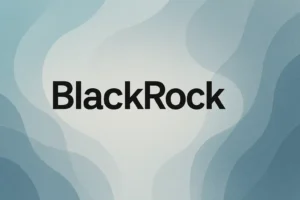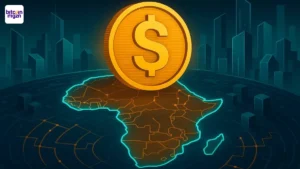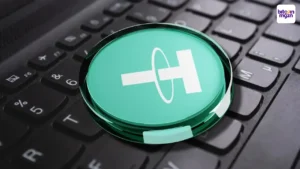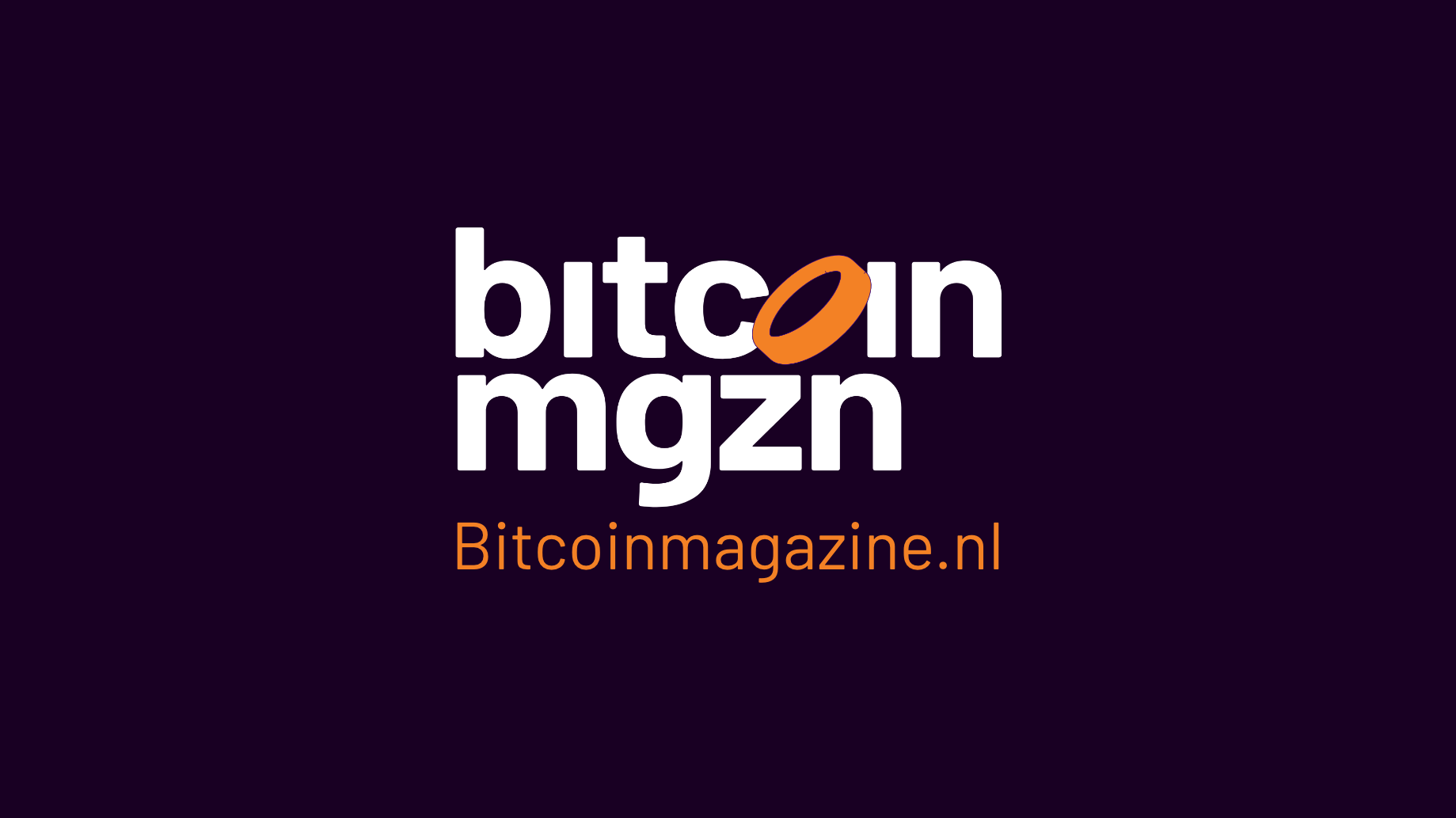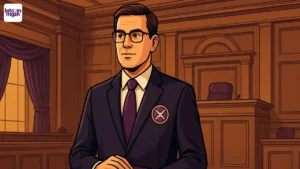Peter Moricz: “Hi, my name is Peter Moricz. I was born in Hungary, brought up in Chicago and now living in Belgium. I started working on the floor at CBOT (Chicago Board of Trade), after I finished University. There I started trading electronically on the CBOT Project A in 1998. In 1999 I moved to the UK where I switched to the Eurex platform. I traded the derivatives futures products, from US 10 years notes, 30 year notes, to German Bunds, Boble and Schatz, so I have lot of familiarity with the futures market that the crypto market is trying to accomplish.
I stopped trading the futures markets in 2014. In 2015, I got a job at JP Morgan Private Bank in London as a Supervisory Manager Regulations, looking after traders to make sure they are following all the new regulations. After JPM I went to work for a Regulatory Technology Company (RegTech) in London, that focused on the upcoming MIFID II regulation coming out of the EU and I also started be more seriously involved with Blockchains. In 2016 I Co-founded a Blockchain company but a few months later I had a fallout with my Co-Founder so we went our separate ways. I started advising on Token Generating Events (ICO) for companies. I looked at Token Generation Events to help StartUps trying to raise money.
There is some amazing technology being created and a lot of smart people coming into this space. You have to see these ICO’s as a worldwide event, where people are able to raise money globally and the rest of the world can buy into it. So the next Amazon could literally come from the Philippines or Colombia.
With an IPO that’s not the case. For example, Snapchat had their IPO last year. But only the underwriting banks were allowed to distribute their allocations to their clients. The public couldn’t profit that much from the IPO, only after it went to the exchange, so you missed out getting in early.
With an ICO anybody can get in, even on pre-sales events, and you don’t have to worry about missing out. Of course you have to do your homework to understand which ICO you want to invest in, because the ICO market is a very volatile unregulated new space. So you should not invest in more than you can afford to lose.”
BM: Do you believe the blockchain has the power to democratize?
PM: “Absolutely! Unfortunately there are some bad elements, which I hope will be minimized in the very near future. But there are bad apples in the stock markets still after being around 100+ years so you will always have bad apples. You still need to have regulations or governance around them, as long as they don’t shut it down, because that would be ridiculous. You need to be sensible how you go about it and make sure people understand the guidance and how to move forward.
But even Jamie Diamond from JP Morgan, who famously said that cryptocurrencies are a scam, likes the underlining technology called the Blockchain. ECB members who responded said a similar thing. Blockchain benefits — security, efficiency, and speed — are readily applicable to public sector organizations, and the technology’s potential help explain why so many government and business leaders are actively exploring the way it can be used.”
BM: Do you believe crypto leads to the democratization of Eastern Europe?
PM: “I believe so. I work with a lot of Slovenian developers and ICO’s. They’re very good in programming, developing and I fully believe they can catch up with the West with this in a monetary way. Especially since in the West people are not doing computer science, engineering, cryptography, etc. They are going to business schools, doing English majors.
Slovenia raised 150 million dollars in ICO’s in the last two years. It’s a small country with just 2 million people. 25 more ICO’s are coming this year, so they need more developers. There are just not that many Blockchain developers, so the prices go up. In Holland there’s also a scarcity in blockchain developers. Besides I know there are lots of crypto currency fans here, the last I read is that there are 850,000 people holding some kind of crypto token.”
BM: Nxchange wants to market an exchange application so ICO’s can be listed in a regulated way. What do you think about that?
PM: “That would be great. It’s a first step in regulating properly and it will be the first in Europe. Hopefully banks will catch up and help. Because one of the biggest difficulties is how to convert your crypto into fiat money. Banks can always choke off that fiat stream. But people really need to believe in the need for it, banks as well. And big media outlets only talk about crypto’s being for drug dealers and such. That might have been true two years ago but not anymore. There’s a lot of humanitarianism in Blockchains and it can change a lot for the good. For example, those people coming to Europe whose passports are taken away because of human trafficking. If you can put their DNA on a blockchain, carrying a passport would belong to the past. Or what about driver license, medical data, all that can be put on a decentralized blockchain. All can be backed up so you are never going to lose it ever again, safely and securely. The whole time it’s your data and you control whom can have access to it.”
BM: So the blockchain technology is here to stay?
PM: “Yes, most definitely. But for now there are disadvantages as well. The Proof of work takes too much energy for example. But then again, nobody talks about how much energy a data centre, for instance Amazon cloud or Microsoft cloud, uses. You also have to spend money for transactions, called (gas), on ethereum. But there is a solution coming. I have been working with a company in Slovenia that’s able to discard that. No proof of work, no proof of stake and no gas. They are working on an extra layer of security which enables the blockchain to interact with Internet of Things devices. This way you don’t need a modem anymore, a router directly connects to the blockchain. Perfect for companies like Bosch and Siemens who work on smart cities and smart infrastructure.”
BM: What do you expect for cryptocurrencies for 2018? A man like Ronnie Moas is quite bullish.
PM: “Mr. Moas is quite bullish and I understand his thinking. There’s 200 trillion dollar of money tied up in bonds, currencies, stocks and gold and all that. If you just take 4 percent of that, that’s a lot of money flowing into the crypto market. Mr. Moas therefor said it is very undervalued. Plus there have been 17 million bitcoins already mined out of 21 million total. But in my personal opinion, which is NOT advice, the crypto market will pull back than trade sideways until regulators sort out how and what to regulate in this crypto space. The clearer the picture on the regulatory side becomes the more momentum will come back into the crypto’s, but I’m not sure how much time that will take. The crypto market rallied enormously in a very short period of time, so a healthy correction is needed.”
BM: Volumes in the bitcoin futures are not that big, is that a problem?
PM: “No new contracts have high volume in the beginning. I was there with the board of trade when the German Bunds came into the floor pits, which had very low volume as well. You have to put things in perspective, and look at the long terms. The more sophisticated institutions are involved now, which is a good thing.”
BM: Ethereum is in the spotlight now. Any thoughts on that?
“Ethereum is in the spotlight now because of the ICO’s, which are mostly working on Ethereum. Also because its founder, Vitalik Buterin, is a visible person. For bitcoin there is no such person, there are just a lot of people that are firm believers, trying to make it better. With Litecoin you have founder Charlie Lee, a very smart ex Google guy. He saw flaw in bitcoin so he went on and fixed it, as a leader. But people started talking and moaning: ‘You are affecting the price of LTC’, so he sold out. And that was at the top of the market, when he walked away with 17 million dollar. You can hate on him but he gave half of it to charity and actually tries to improve things and be as transparent as possible.
Now people want to put something on Vitalik but he just wants to make ethereum a great product. Try to make something that will go faster and safer, and that’s what you do as a crypto leader. Vitalik was talking the other day in Singapore, giving a network update. Talking about improving it, security flaws etc. But people should remember it’s only been out there for three years. Four years ago it didn’t even existed. Think about that! I mean, we still have problems with 4G network in the midst of our talk. But mobile services have been around for 30 years!”
BM: How do you see the crypto space move forward?
PM: “There are a couple of issues that needs to be sorted out before the crypto world can go main stream. The biggest issue is to switch crypto tokens over to fiat. Regulations and taxation issues need to be cleared up as well.
Do you know that in America, there are three agencies that are involved regulating crypto currencies? The IRS, the SEC and the CFTC. Three different ways to look at how to tax crypto. CFTC looks at it as a commodity. The SEC as a security and the IRS as property. They really need to come on the same page regarding.
The last congressional hearings, that nobody paid much attention to since the stock market crashed that day, was a low in the Bitcoin market. After that the market reacted positively to the testimony.
Like I said, the regulatory bodies are doing their best to catch up, they are not shutting it down like China did. They are trying to find the right balanced way towards regulating it, and you have to give them credit because they are moving quite fast. It’s a new technology and they need new people with knowledge of the matter and they need more budget for it. So they are doing their utmost best.
I spoke to people at the European Parliament, and I know they are looking into the Blockchain crypto space as well. They don’t want to shut it down neither. They just want to make sure, and I agree with them, to have some government regulations around it.
These people are carefully trying to put all regulations into a new market, and there are plenty of solutions. For example the KYC/AML “know-your-customer” procedure. But they also need to make sure the exchanges are registered. Besides, making sure the wallets are much more secure and the infrastructure is more stable and scalable is very important as well.
I know I sound a bit like a broken record by now, but people need to be patient since we are only in the beginning of the new WEB 3.0.”


